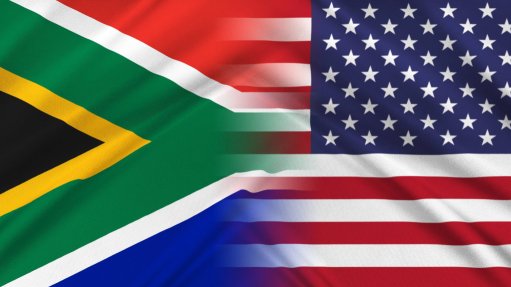Fishing line pilot project successful, next phase starts
Following the successful implementation of a pilot project to use polyvinyl chloride (PVC) pipes as bins for discarded fishing line along the Overberg–Gansbaai shoreline, bins are being placed at Western, Northern and Eastern Cape beaches, where fishermen can dispose of their broken or used lines.
Plastics SA sustainability manager John Kieser says more than 150 pipes have recently been donated by plastic water reticulation systems manufacturer DPI Plastics for the next phase of the project.
“The pilot project was modelled on a larger project in the US, which was carried out along the coast and great lakes.
“The Dyer Island Conservation Trust started the project in South Africa four years ago in the Overberg area between De Hoop and Gordons Bay by partnering with the local authorities in the placement and management of the bins at popular fishing spots. We have received tremendous support from the public and the fishermen,” he says.
Kieser points out that dis- carded fishing line is collected on a weekly basis by volunteers from the Dyer Island Conservation Trust.
He notes that sea birds and marine life are often trapped and killed as a result of fishing line that is not properly disposed of.
“Each year, the results of international coastal clean-ups show that discarded fishing line continues to be a major pollutant on our beaches.
“To this end, we partnered with the Southern African Plastic Pipe Manufacturers Association (Sappma) and one of its members, DPI Plastics, which provided funding and the PVC pipes, which are converted into bins that are erected on the beaches. The bins are resistant to the elements and corrosion and prevent fishing lines from being blown away,” states Kieser.
He points out that the pilot study findings indicated that the project was feasible, but that it would need to be managed better to deal with challenges, such as vandalism and other materials, like rope, being placed in the bins.
“We are also looking into how to cut the monofilament line smaller so that it can be melted. We are planning to melt the line to create benches for the areas from which it is collected,” adds Kieser.
The project is under way and will also be implemented at South African dams and rivers, he says, adding that it is difficult to estimate the time of completion for the project in these areas.
“So far, 100 bins have been placed at various points along the coastline of the three Cape provinces, with the roll-out in KwaZulu-Natal planned for 2013,” he says.
“The project has proved that it takes a long time to collect 1 kg of fishing line and we need 1 000 kg to make a bench. However, line collected from our Stash Your Stick programme has been of a better quality and a higher quantity, as the line from the coast is often brittle or full of biotic material,” he says.
The Stash Your Stick programme involves retrieving light sticks and monofilament line from the large pelagic fishing industry, including tuna and swordfish long-line fishing.
Kieser notes that these glow sticks are often found on beaches, which has led Plastics SA to collect them from the fishermen.
“The fishermen use long lines, with thousands of fluorescent glow sticks attached to them, which attract the tuna and swordfish. “This increases the supply of fishing line and makes the melting of the line that is collected on the beaches easier,” he says.
However, Plastics SA is still trying to find a partner that will be able to recycle the tons of glow sticks it is storing.
“The glow sticks are made from a good-quality, fibreglass-reinforced plastic, but the fluorescent liquid they contain has shards of glass inside it. We need to find a partner that can remove this liquid and glass, and granulate and recycle the plastic,” he says.
Sappma chairperson Jan Venter says the association is proud to demonstrate that plastic can be used to benefit the environment and provide a tangible solution for a problem that needs an immediate solution.
“We hope that the fishing line project educates the public on the responsible disposal of plastic and the sensitivity of our oceans and wildlife.
We hope to increase the number of bins sufficiently to completely eliminate harm to our marine life as a result of fishing line,” Kieser concludes.
Article Enquiry
Email Article
Save Article
Feedback
To advertise email advertising@creamermedia.co.za or click here
Press Office
Announcements
What's On
Subscribe to improve your user experience...
Option 1 (equivalent of R125 a month):
Receive a weekly copy of Creamer Media's Engineering News & Mining Weekly magazine
(print copy for those in South Africa and e-magazine for those outside of South Africa)
Receive daily email newsletters
Access to full search results
Access archive of magazine back copies
Access to Projects in Progress
Access to ONE Research Report of your choice in PDF format
Option 2 (equivalent of R375 a month):
All benefits from Option 1
PLUS
Access to Creamer Media's Research Channel Africa for ALL Research Reports, in PDF format, on various industrial and mining sectors
including Electricity; Water; Energy Transition; Hydrogen; Roads, Rail and Ports; Coal; Gold; Platinum; Battery Metals; etc.
Already a subscriber?
Forgotten your password?
Receive weekly copy of Creamer Media's Engineering News & Mining Weekly magazine (print copy for those in South Africa and e-magazine for those outside of South Africa)
➕
Recieve daily email newsletters
➕
Access to full search results
➕
Access archive of magazine back copies
➕
Access to Projects in Progress
➕
Access to ONE Research Report of your choice in PDF format
RESEARCH CHANNEL AFRICA
R4500 (equivalent of R375 a month)
SUBSCRIBEAll benefits from Option 1
➕
Access to Creamer Media's Research Channel Africa for ALL Research Reports on various industrial and mining sectors, in PDF format, including on:
Electricity
➕
Water
➕
Energy Transition
➕
Hydrogen
➕
Roads, Rail and Ports
➕
Coal
➕
Gold
➕
Platinum
➕
Battery Metals
➕
etc.
Receive all benefits from Option 1 or Option 2 delivered to numerous people at your company
➕
Multiple User names and Passwords for simultaneous log-ins
➕
Intranet integration access to all in your organisation


















